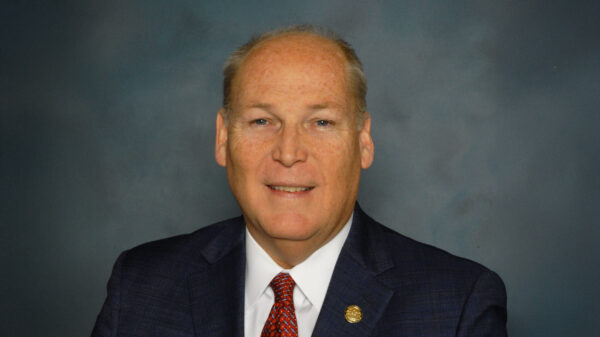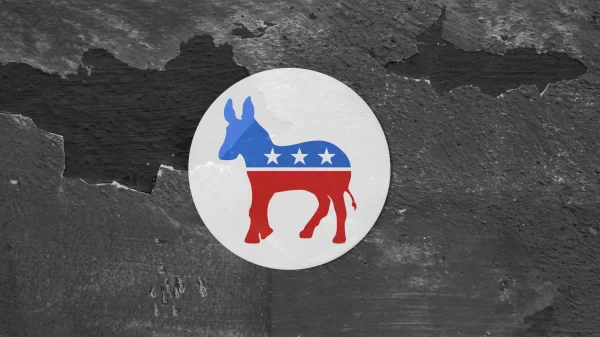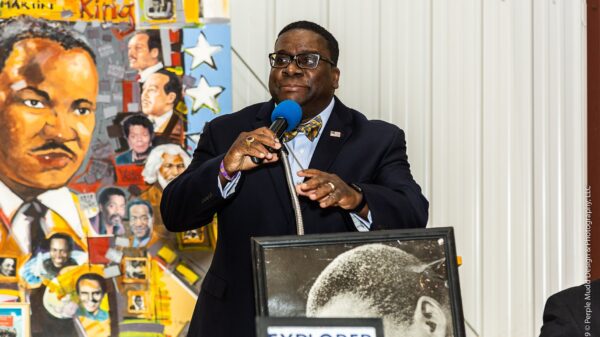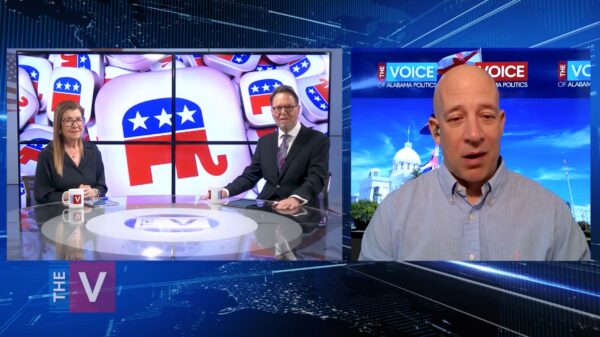U.S. Sen. Doug Jones, D-Hoover, spoke on the Senate floor Wednesday to urge his colleagues to support renewed funding for historically black colleges and universities and other minority-serving institutions by passing his bipartisan, bicameral Fostering Undergraduate Talent by Unlocking Resources for Education Act.
“At the end of the fiscal year, nearly half of all federal funds for these schools that they receive each year and have so for a long, long time, that is going to end…. That’s $255 million annually that they have been able to count on for well over a decade,” Jones said. “That is going to come to a screeching halt if we don’t act, and we need to act now.”
Jones said that, “Ensuring equal access to quality education should not be a partisan issue.”
The FUTURE Act was introduced by Jones and Sen. Tim Scott, R-South Carolina. The FUTURE Act renews $255 million in annual mandatory funding set to expire at the end of this fiscal year for all minority-serving institutions, including HBCUs. The legislation would extend this funding for an additional two years.
Jones is an advocate for greater federal investment in America’s HBCUs. Jones has secured a 14-percent increase in funding for HBCUs and led an effort to examine and address the disproportionate student debt burden among students of color. Jones also held an inaugural HBCU Summit at Lawson State Community College in Birmingham.
“These historic institutions serve nearly four million students of color,” Jones told his fellow senators. “Many of our nation’s brightest minds have matriculated at these institutions. HBCUs are the leading educators for African American PhDs in science and in engineering. They are foundational to building generational wealth in communities that have long faced headwinds in doing so. They are doing amazing work. They are doing incredible work with very limited resources, and with their own individual financial headwinds to contend with.”
“In Alabama, we are home to 14 HBCUs, more than any state in the country,” Jones said. “So they are an integral part of my home state’s higher education system, and just as importantly, they’re integral to the economy of Alabama. Minority-serving institutions play an essential role in America’s higher education system. For example, Hispanic-serving institutions account for 13 percent of all nonprofit colleges, yet they enroll 62 percent of all Hispanic students. More than 75 percent of students at HBCUs and nearly 80 percent of students at tribal colleges and universities receive Pell grants, compared to only 32 percent of all students.”
Senator Jones is a member of the Senate Health, Education, Labor and Pensions (HELP) Committee.
Jones was elected in a special election in December 2017 to fill the remaining term of Jeff Sessions who had been confirmed as U.S. Attorney General.
Jones officially launched his re-election campaign in Birmingham on Sunday.
The major party primaries will be on March 3 and the general election will be held on November 3.



















































